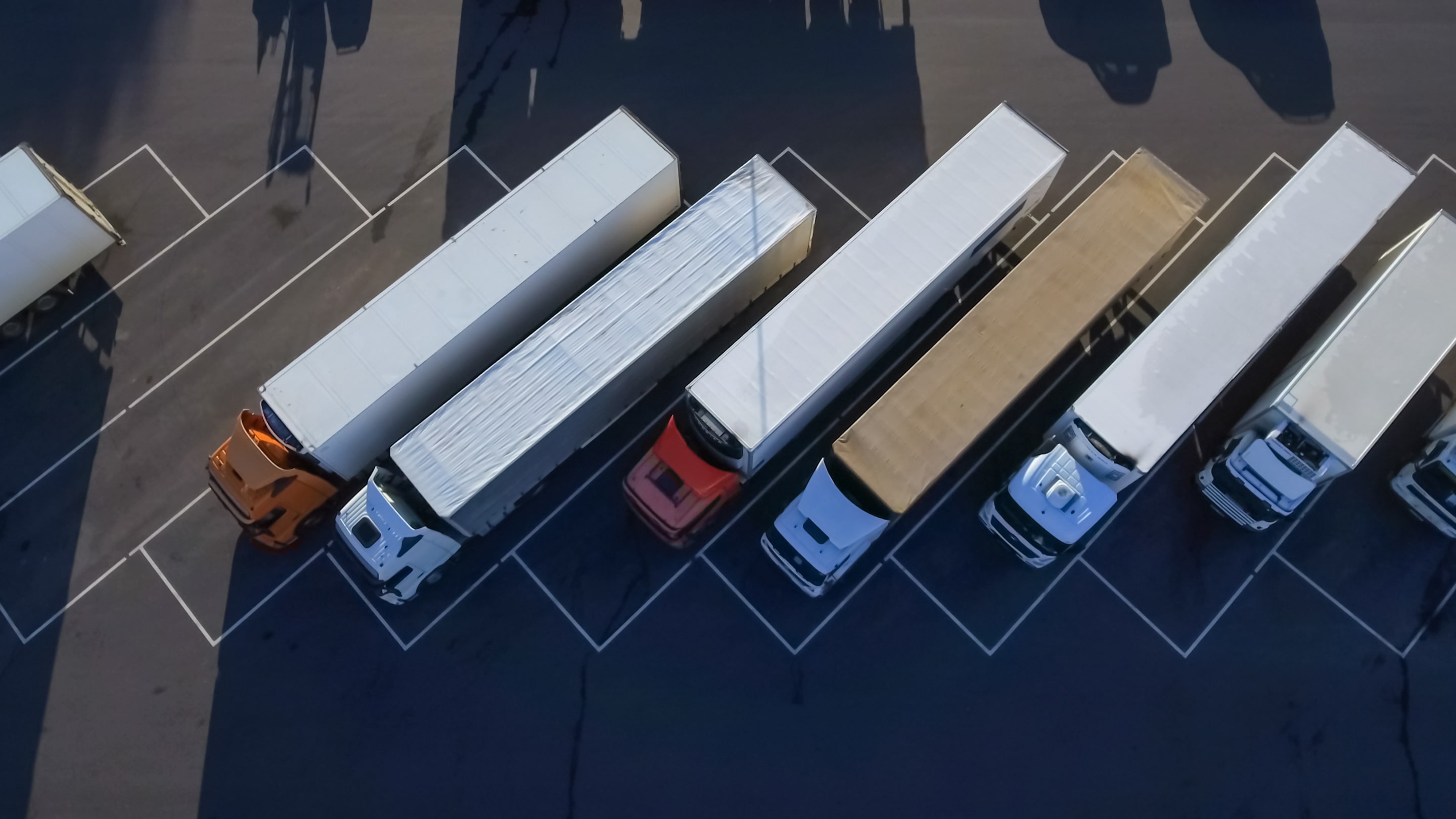
Guest
Soluționarea problemei deficitului de șoferi de vehicule grele de marfă în Regatul Unit în 2024/2025
Creat: 16.08.2024
•
Actualizat: 10.10.2024
Deficitul de șoferi de vehicule grele de marfă din Regatul Unit a reprezentat o provocare complexă și cu multiple fațete, cu implicații de anvergură pentru economia și lanțurile de aprovizionare ale țării. Cu toate acestea, eforturile concertate ale guvernului, ale industriei și ale părților interesate au început să dea rezultate pozitive, sugerând că valul se poate întoarce.
Pe măsură ce Regatul Unit se îndreaptă spre 2024 și 2025, angajamentul continuu de a aborda deficitul de șoferi, împreună cu concentrarea pe atragerea și păstrarea persoanelor talentate, vor fi esențiale pentru asigurarea rezilienței și prosperității pe termen lung a sectorului transporturilor.
Profunzimea crizei
Deficitul de șoferi de vehicule grele în Regatul Unit a reprezentat o preocupare tot mai mare, situația atingând un punct critic în 2021. Potrivit rapoartelor din industrie, țara s-a confruntat cu un deficit de aproximativ 100.000 de șoferi de camioane la apogeul crizei. Această cifră a reprezentat o creștere semnificativă față de deficitul de 59 000 de șoferi raportat în 2019, subliniind deteriorarea rapidă a situației.
Factorii care au contribuit la această penurie au fost multipli, inclusiv impactul pandemiei COVID-19, consecințele Brexitului și modificările normelor fiscale IR35 care au afectat șoferii de vehicule grele angajați de agenții pe bază de contract. Aceste perturbări au determinat mulți șoferi cu experiență să părăsească industria, în timp ce pe piață nu intrau suficiente talente noi pentru a umple golul.

Intervenția guvernului și eforturile industriei
Recunoscând gravitatea situației, guvernul britanic și părțile interesate din industrie au luat măsuri decisive pentru a soluționa deficitul de șoferi de vehicule grele. Departamentul pentru Transporturi a raportat o îmbunătățire notabilă, procentul de posturi vacante de șoferi de vehicule grele de marfă raportate de întreprinderile de transport scăzând de la 43% în T4 2021 la 23% în T3 2023.
Una dintre măsurile-cheie implementate a fost creșterea finanțării pentru atragerea și formarea de noi șoferi de vehicule grele. De asemenea, guvernul a accelerat procesul de obținere a permiselor de conducere pentru vehiculele grele de marfă și a investit 8 milioane de lire sterline pentru a îmbunătăți calitatea zonelor de odihnă pentru vehiculele grele de marfă, abordând problema de lungă durată a condițiilor de muncă precare pentru șoferi.
SNAP a ajutat mai multe parcuri de camioane din Marea Britanie să creeze cereri de finanțare guvernamentală pentru a-și îmbunătăți facilitățile. Aflați mai multe despre truck parks incluse în rețeaua SNAP.
Abordarea problemei îmbătrânirii forței de muncă și atragerea tinerelor talente
Una dintre provocările persistente din industria șoferilor de vehicule grele este îmbătrânirea forței de muncă, vârsta medie a șoferilor fiind de 48 de ani. Industria se luptă să atragă tineri talentați, deoarece percepția unor condiții de muncă precare, a unor salarii medii și a unei cariere neinspirate i-a descurajat pe mulți să ia în considerare o carieră în conducerea camioanelor.
Pentru a soluționa această problemă, guvernul a lansat recent o consultare în vederea reducerii vârstei minime necesare pentru șoferii de autobuz și autocar, ceea ce ar putea oferi mai multe oportunități persoanelor tinere de a intra în sectorul transporturilor. Această măsură, combinată cu eforturile de îmbunătățire a facilităților pentru șoferi și a condițiilor de muncă, ar putea contribui la creșterea atractivității industriei pentru următoarea generație de lucrători.
Consultați harta parcărilor de camioane, stațiilor de spălare a camioanelor și spațiilor de cazare din diferite regiuni acoperite de rețeaua SNAP.

Depășirea obstacolelor de reglementare și adoptarea flexibilității
Un alt factor care a contribuit la deficitul de șoferi de camioane grele a fost reprezentat de obstacolele de reglementare și birocrația cu care se confruntă noii șoferi la intrarea în industrie. Procesul de obținere a licențelor și certificărilor necesare poate fi lung și costisitor, descurajând potențialii candidați.
Pentru a rezolva această problemă, părțile interesate din industrie au pledat pentru proceduri de formare și testare mai flexibile, similare cu abordarea adoptată de companiile de autobuze. Prin simplificarea procesului și accesibilizarea acestuia, se dorește creșterea numărului de șoferi calificați care intră pe piață.
Impactul Brexitului și al COVID-19
Penuria de șoferi de camioane în Regatul Unit a fost complicată și mai mult de consecințele Brexitului și de perturbările cauzate de pandemia COVID-19. Pierderea șoferilor din UE, care anterior reprezentau o parte semnificativă a forței de muncă din Marea Britanie în domeniul conducerii de camioane, a fost o lovitură semnificativă.
În plus, impactul pandemiei asupra formării și testării a dus la un număr mare de șoferi noi care intră pe piață. Pe măsură ce economia și-a revenit, cererea crescută de bunuri și servicii a exercitat o presiune și mai mare asupra sectorului transporturilor, care era deja sub presiune.

Colaborare și inovare
Abordarea deficitului de șoferi de vehicule grele va necesita un efort de colaborare între guvern, părțile interesate din industrie și instituțiile de învățământ. Lucrând împreună, aceștia pot dezvolta soluții cuprinzătoare care să abordeze cauzele profunde ale problemei și să creeze un sistem de transport mai durabil și mai rezilient.
Adoptarea unor abordări inovatoare, cum ar fi utilizarea tehnologiei pentru optimizarea logisticii și îmbunătățirea eficienței șoferilor, poate juca, de asemenea, un rol crucial în atenuarea impactului deficitului de șoferi. Investițiile în infrastructură, programele de formare și inițiativele axate pe șoferi pot contribui la crearea unei forțe de muncă mai puternice, mai diverse și mai reziliente.
Drumul de urmat
Pe măsură ce Regatul Unit navighează prin peisajul în continuă evoluție al deficitului de șoferi de vehicule grele, este clar că soluția va necesita o abordare cu mai multe fațete. Sprijinul guvernamental continuu, colaborarea cu industria și angajamentul de a atrage și păstra șoferii talentați vor fi esențiale pentru asigurarea rezilienței rețelei naționale de transport.
Deși este posibil ca această criză să nu fie pe deplin rezolvată în viitorul imediat, măsurile luate până acum oferă o rază de speranță. Prin menținerea accentului pe inovare, flexibilitate și incluziune, Regatul Unit poate lucra la un viitor în care sectorul transporturilor să fie echipat pentru a răspunde cerințelor în creștere ale economiei și nevoilor cetățenilor săi.


